Barking is a totally normal way for dogs to communicate. In fact, humans have selectively bred many breeds specifically for their ability to bark!
But in modern society (and particularly urban settings), barking can become a nuisance behavior that many people want to “fix.” Unfortunately, few know how to approach it.
But all is not lost! There is hope for a quieter future.
Below, we discuss some of the ways to problem solve your pupper’s barking.
When Is Barking a Problem?
It is normal for a doggo to bark every now and then. He may hear a bump in the night and bark to alert you or see the poodle across the street through the living room window.
The trick is, figuring out when the barking is acceptable and when it requires attention.
Barking becomes a problem (for us) when it becomes excessive, it’s bothering the neighbors, or it’s disrupting our own peace and quiet time.
Barking can also be a problem (for our dogs) if they are barking because they are afraid or anxious. In these situations, we want to address the root cause of their fear so that they can learn how to relax and feel better.
Why Is Your Dog Barking?
In order to solve your dog’s excessive or problematic barking, you’ll need to figure out what’s causing the barking to begin with.
Below, we’ll discuss a few common scenarios to help you pinpoint the cause of your pupper’s barking behavior and begin to address it.
My Dog Barks at House Guests
Dogs often bark when people come to their house, either out of excitement or to make them go away.
Sometimes it’s the doorbell or someone knocking that triggers the barking. If they are not excited to see people, their barking could be territorial, or it could be “stranger danger” (fear of strangers).
My dog, Juno, doesn’t like strangers, but is quite tolerant of people when we are out on a walk. However, when a stranger visits the house, she is faced with a forced interaction (even from another room) as well as an intruder in her safe space.
What can you do?
- Prevention — Use another room, a kennel, barriers or a tether to prevent your dog from rushing the door or your guest. This might be necessary with unexpected house guests that you haven’t had time to prepare for.
- Teaching — Teach your dog what you would prefer them to do rather than bark. I like to teach “go to your mat” for this situation. It will give your pup a clear direction, predictability, and he will know exactly what to expect: Go to mat — get treats — person comes in — stay calm – more treats. You can even use the doorbell as the cue for him to go to his mat. Viola! You don’t have to say a thing. This is particularly useful for dogs who are fearful.
- Practice — A big problem with barking at house guests is (for me, anyway) hardly having any! It’s hard to make it a routine and less exciting and/or scary if it only happens every now and then. So, recruit your friends, neighbors, the mail carrier, the kids from down the street, and strangers walking by, to help you make it a normal part of life.
Another alternative that often works well, and worked for my old dog, Monday, was having her pick up a toy when someone knocks on the door.
She would often bark at house guests when they first arrived out of sheer excitement. But, having a toy in her mouth meant that she wasn’t able to bark.
My Dog Barks at Strangers When We Are Out for a Walk
Barking at strangers when out for a walk is a form of “stranger danger!” or a sign of frustration.
Dogs are often more reactive (lunging, barking, growling) when they are restricted by a leash. This could be because they are frustrated and want to greet people or because they are scared of strangers.
You’ll notice a different type of bark for excited greeters and dogs who are genuinely frightened.
A dog who is fearful goes into fight or flight mode. The leash restricts a dog’s flight instinct and only provides one option, fight. Fluffy hopes that by barking, lunging and growling, the person will go away (and chances are, they will!)
So, what can we do with a leash reactive dog?
There are several techniques a qualified behavior consultant may be able to help you with resolving leash reactivity. All of these techniques involve desensitizing a dog to the stranger and changing their emotional response in their presence. It takes time and patience.
In order for any of the techniques to work, your four-footer must remain under his fight-or-flight threshold. This means keeping your dog far enough away that he can see the person, yet not so close that he reacts to the person. For some dogs, this can be a pretty far distance!
Here are a few techniques for helping a reactive Rover:
1. Engage / Disengage
Engage/Disengage: This is a technique where your dog is rewarded with a delicious high value treat for looking at a trigger (aka, engaging with the stimuli). Eventually, when he sees a person, he will start to look at you for that reward (aka disengaging with the stimuli).
The video below shows what it looks like in action!
2. Look at That (LAT)
This is simply rewarding your dog for looking at the person. Fido looks at a stranger and gets a treat — simple as that!
3. Behavior Adjustment Training (BAT)
Behavior Adjustment Training (BAT): This concept uses a functional reward for calm behavior. This means, when your dog shows calm body language, you move away from what he is afraid of as the reward.
All of these techniques utilize some forms of desensitization and counterconditioning. This means getting your dog used to something without overwhelming him. This empowers him, and ultimately changes his emotional reaction.
Because the timing and positioning is so key to success with these methods, I suggest working with a professional at the outset.
My Dog Barks at People Outside from the Window
We have all walked by a house at some point in our lives with a dog barking incessantly through the window at our mere presence.
Some dogs even have a bed or comfy perch right there for easy viewing and spend all day sitting on their perch barking at people, dogs, cats, cars… they bark at everything!
Our video about preventing nuisance barking may be helpful in these types of situations:
If this sounds like your dog, here are some helpful tips:
- Prevent him from barking in the first place. The more your dog practices his barking, the better he will be. It may be what he does to pass the time while you’re at work all day. Instead of letting him practice, block his view. Prevent him from entering the viewing space, block the window with blinds, or use a window film to block his view.
- Use a white-noise generator or leave your TV on when you leave. This will help prevent your dog from hearing sounds that may trigger barking sessions.
- Desensitize your dog to his sound triggers by getting him used to them. Play audio of people talking, cars, kids, dogs barking (whatever outside noises trigger him). Start at such a low level that there is no response from your dog. As a bonus, give him something to do like a task, treat, or puzzle toy when he hears the sound. Slowly, over time, increase the volume until these sounds are normal and are no longer triggering your dog to bark.
- Teach your dog an “enough” cue. This needs to be practiced a great deal before hand. All you need to do is say “enough” and scatter treats on the floor. Pretty soon “enough” means look at the floor. Now try using it when your dog is barking. Once he has found all his treats, keep his attention for a few more minutes by playing with him or giving him something else to do, like playing with a stuffed KONG toy.
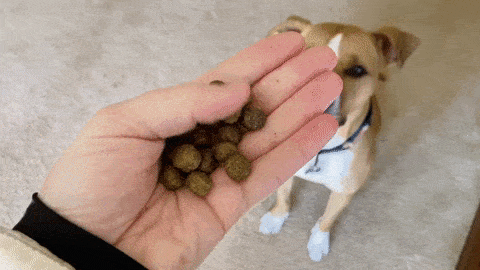
Habits are hard to break, but if you’re consistent, you can change his pattern of behavior to something more desirable.
My Dog Barks at Me!
Some dogs bark for your attention. And they probably get it, in some form or another. Because we are reinforcing the bark by paying attention to him, mostly to try to shut him up, we make it so much worse!
Demand barking — when Fido does his best to get your attention by barking — can be quite irritating.
So, how do you get it to stop without giving in to his demands?
As with everything else in this article, I will start with prevention. Demand barking often stems from boredom. Boredom is a common issue for our dogs, as our busy lives require most of our attention.
To combat canine boredom, make sure your dog is getting enough exercise and social time. Dogs are social animals and need to interact with other dogs (if that is their choice of friends), people, or even other animals.
Tiring your dog out is not a substitute for enrichment, however. It is just a little piece of the puzzle.
Enrichment is something added to your dog’s life to promote his natural behaviors and prevent boredom. It is something that stimulate his mind. Enrichment promotes better wellbeing by keeping him busy and increasing his perception of control over his environment.
I could write a whole article on enrichment, but check out the video below for some DIY enrichment ideas.
But, what do you do when he is already barking?
You’ll have to ignore him.
Any attention, whether it’s negative or positive, will only reinforce the barking. Just wait it out, as hard as that is. And, unfortunately, it’ll often get worse before it gets better.
But because he wants your attention, any attention you give him is rewarding.
When he stops barking and is chilled out, reward him. It’s always important to let your dog know what you would like him to do instead of the problem behavior — this is the part that most people forget. Try to not let yourself focus only on his undesired behaviors!
Reward him when he is calm and quiet. The more you do this, the stronger this new habit will become. Carry around a pocketful of treats and when he is acting appropriately, slip him a delicious morsel!
***
As normal as barking is for our dogs, it can become problematic. Regulations and by-laws make it increasingly challenging for our dogs to navigate our human environment.
Let us know some of your best tricks for preventing your dog from barking in the comments below!
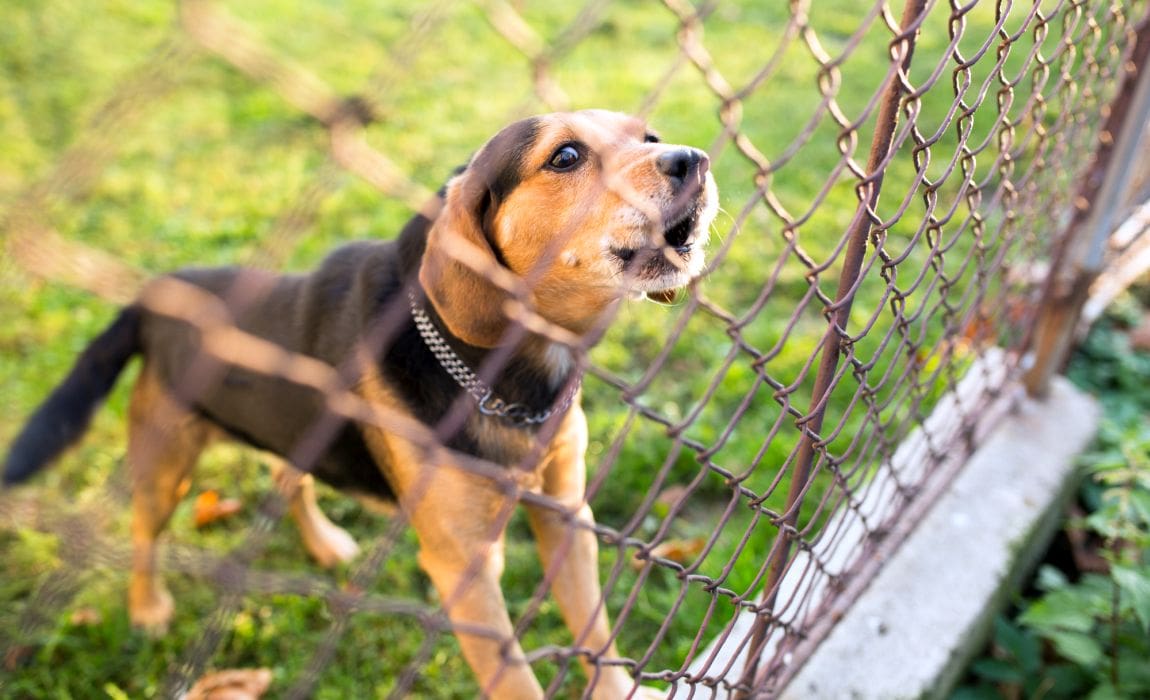




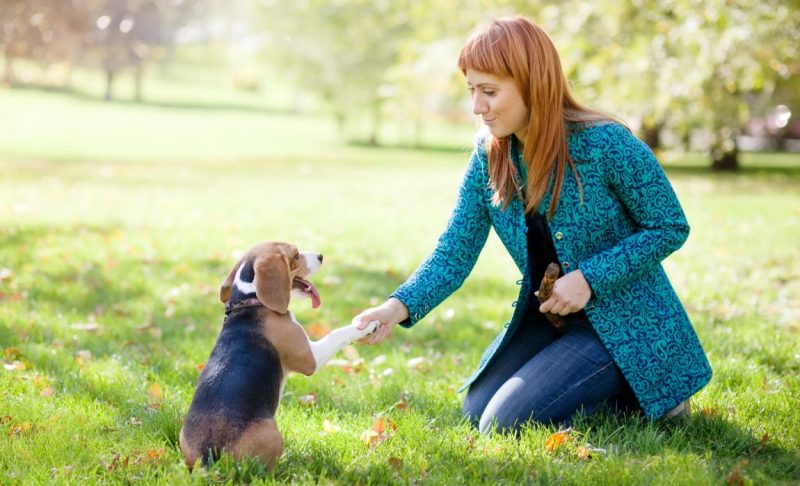
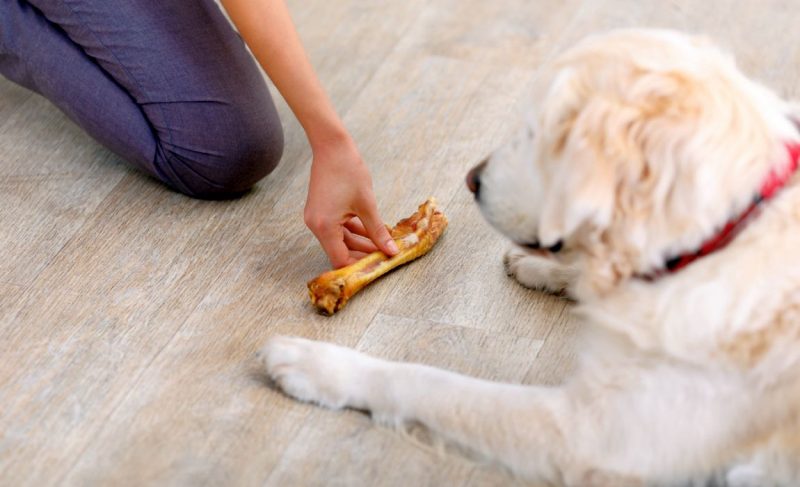

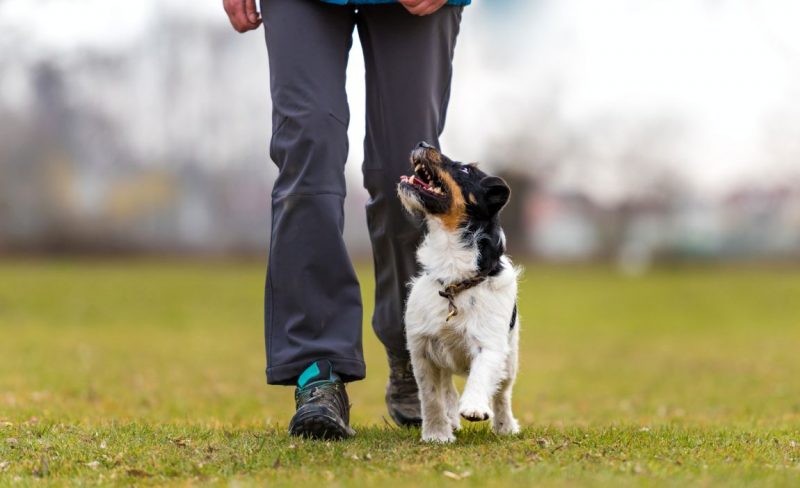
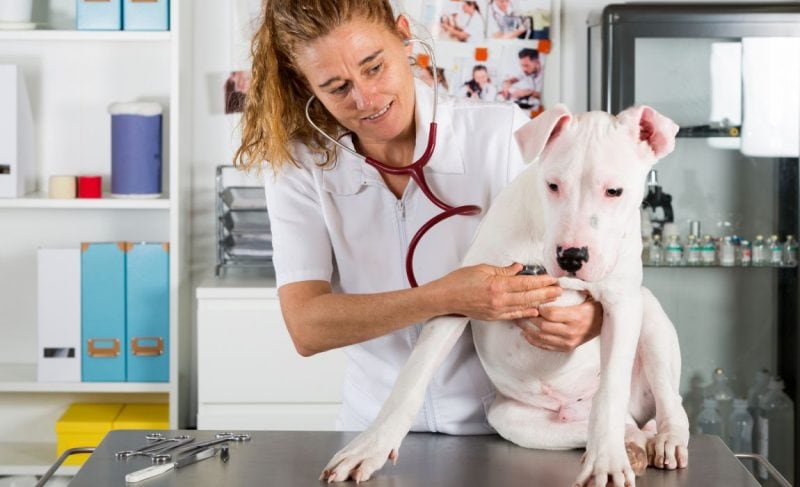



Leave a Comment